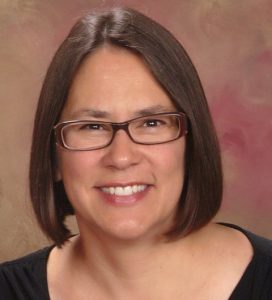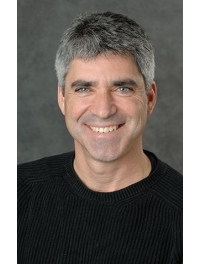
Eric Aronoff
Eric Aronoff [Ph.D. English, Rutgers University] is Associate Professor of Literature and Culture in the Residential College in the Arts and Humanities. Eric’s research interests include 19th- and early 20th-century American literature; anthropology, theories of culture, race, and nation, literature and the environment, and science fiction. His book, Composing Cultures: Modernism, American Literary Studies, and the Problem of Culture was published by University of Virginia Press in 2013. It traces debates over the idea of “culture” among artists, literary critics, and anthropologists during the early part of the twentieth century. Eric won a Teacher-Scholar Award in recognition of his devotion to and skill in teaching and has led the Nature, Culture, and Environmental Issues in a Green Israel study abroad program.
CAMPUS ADDRESS: C-220B Snyder Hall
PHONE: 517-884-1320
Email: aronoffe@msu.edu

Safoi Babana-Hampton
Safoi Babana-Hampton [Ph.D. Modern French, U. of Maryland] is an Associate Professor who teaches Francophone literatures and cultures in French, Classics, and Romance Languages. She has published Réflexions littéraires sur l’espace public marocain dans l’uvre d’Abdellatif Laâbi (2008) on the literary work of Moroccan writer Abdellatif Laabi, founder of the New Moroccan literature and advocate of cultural renewal in the 1960s. Her interests include contemporary Judeo-Maghrebi literatures, Beur (Franco-Maghrebi) literature and the relations between Maghrebi literatures and the other arts. She is working on a new study about perceptions of citizenship in the literary and autobiographical narratives by Maghrebi and Franco-Maghrebi women writers, across class, culture, and religious differences.
CAMPUS ADDRESS: B-461 Wells Hall
PHONE: 517-884-6311
EMAIL: babanaha@msu.edu

Gerard Breitzer
Gerard Breitzer [D.O., Chicago College of Osteopathic Medicine] is Professor of Pediatrics; Department of Pediatrics, in the MSU College of Medicine. He is continuing his research on Maimonides, the 12th century philosopher and physician who helped keep Greek medical knowledge alive during the Dark Ages, and how his medical aphorisms can apply to medical treatments for children today. He practices Primary Care Pediatrics with the MSU HealthTeam. He is directly involved with clinical teaching of medical students and pediatric residents. As a child health advocate, he is a national spokesperson for children’s health, safety and welfare. Dr. Breitzer has authored numerous articles and book chapters and is an invited speaker and radio personality.

Steven Fraiberg
Steven Fraiberg [Ph.D., English/Concentration in Writing Studies, U. of Illinois at Urbana-Champaign] is an Assistant Professor in Writing, Rhetoric, and American Cultures where he teaches courses in composition, professional writing, and language and culture. In his research, he examines language and cultural shift in Israeli society as it transitions from the socialist ideals of the kibbutz to a capitalist system based on global high-tech industries. In his work, Dr. Fraiberg studies language practices in classrooms, communities, and start-up companies in Israeli society. He previously lived and worked in Israel for four years as a technical writer in the high-tech industry.
CAMPUS ADDRESS: Bessey Hall 252
PHONE: 517-884-3885
EMAIL: sfraibe2@msu.edu

Christopher A. Frilingos
Christopher A. Frilingos [Ph.D., Religious Studies, U. North Carolina at Chapel Hill] is Associate Professor in the Department of Religious Studies. His primary research interests are early Christian history and literature, religious violence in the ancient Mediterranean world, and the interpretation of biblical texts. He regularly teaches the course Introduction to Biblical Literature, a survey of the history of Christianity up to the Reformations, and a seminar on the literature and history of early Christianity up to the reign of Constantine. He has won a Fintz Award for Teaching Excellence in the Arts and Humanities. Spectacles of Empire: Monsters, Martyrs, and the Book of Revelation (2004) examined the relationship between the final book of the Christian New Testament and the performance of spectacles under the Roman Empire. He has recently published in the Journal of the American Academy of Religion on Josephus, the first-century Jewish historian. He is working on a book-length study of childhood stories about Jesus in early Christian writings.
CAMPUS ADDRESS: C-729 Wells Hall
PHONE: 517-353-6352
EMAIL: frilingo@msu.edu
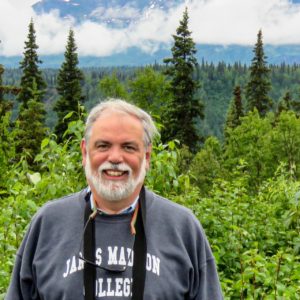
Sherman W.Garnett
CAMPUS ADDRESS: Case Hall Room S311
EMAIL: garnetts@msu.edu

Assaf Gilad
Assaf Gilad is Chief of the Division of Synthetic Biology and Regenerative Medicine, Institute for Quantitative Health Science and Engineering at MSU. He has authored 66 peer reviewed scientific papers, co-authored 7 patents, and developed novel biosensors(genetically encoded reporters and nanoparticles) by combining cutting-edge molecular and synthetic biology tools with advanced biomedical imaging technologies. He received his Ph.D. in LifeSciences from the Weizmann Institute of Science in Rehovot, Israel. Before coming to MSU this year, he served as an Associate Professor in the Department of Radiology and the Institute for Cell Engineering at Johns Hopkins University School of Medicine.
Dr. Gilad is enthusiastic about promoting research collaboration between MSU scholars, Israeli scholars and Israeli institutions, participating in and expanding study abroad opportunities in Israel, and joining our intellectual community.
CAMPUS ADDRESS: 2314 Bioengineering Facility
PHONE: 517-884-7468
EMAIL: gilad@msu.edu

Steven J. Gold
is professor and graduate program director in the Department of Sociology at Michigan State University. His scholarly interests include international migration, ethnic economies, ethnic community development, qualitative field methods and visual sociology. Gold is the author, co-author or co-editor of nine books including The Israeli Diaspora (Routledge/University of Washington Press 2002) which won the Thomas and Znaniecki Award from the American Sociological Associations’ International Migration Section for the best book on international migration in 2003. The chair of 22 PhD dissertations and author of over 100 journal articles and book chapters, Gold received the Charles Horton Cooley Award for Distinguished Scholarship in Sociology from the Michigan Sociology Association in 2007 and the Distinguished Career Award from the American Sociological Association, International Migration, Section in 2019.
CAMPUS ADDRESS: 316 Berkey Hall
PHONE: 517-353-6352
EMAIL: gold@msu.edu

Matthew Handelman
Professor Matthew Handelman is Assistant Professor of German and affiliated faculty in the Jewish Studies Program at MSU. His research interests include German-Jewish literature and philosophy in the early twentieth century, the intersections of science, mathematics and culture in German-speaking countries, as well as the digital humanities and the history of technology. Matthew has published on these topics in international journals such The Leo Baeck Yearbook and the Journal of the Society for European-Jewish Literary Studies. Currently, he is working on two major projects. The first is a book manuscript that examines the philosophical and aesthetic application of mathematical thinking in the writings of Franz Rosenzweig and Siegfried Kracauer. The second is a collaborative digital project with scholars in Israel and Germany – together they are working to design and build a social edition of Franz Rosenzweig’s Star of Redemption.
Matthew received his Ph.D. from the University of Pennsylvania with a concentration in German literature and culture from the Middle Ages to the present. During his graduate work, he was a fellow of the Leo Baeck Institute Programm, the DAAD, and the Deutsches Literaturarchiv, Marbach am Neckar. He received his B.A. from Hamilton College with a dual major in mathematics and German literature.
CAMPUS ADDRESS: B-263 Wells Hall
PHONE: 517-355-5184
EMAIL: handelm@msu.edu

Karrin Hanshew
Karrin Hanshew [Ph.D. History, University of Chicago] enjoys teaching in the broader field of modern European history with an emphasis on modern Germany and post-1945 memory and reconstruction. Karrin’s research interests in social movements, the politics of resistance and transnational alliances reflect her particular commitment to the field of contemporary history. Since coming to MSU, Karrin has taught HST 392 “History of the Holocaust” every spring as well as a number of 400-level seminars on Nazi Germany and postwar memory. Karrin’s first book,Terror and Democracy in West Germany (Cambridge University Press, 2012), investigated West German efforts to contain terrorism in the 1970s. Her current project brings together a number of different research strands—tourism, food, migration, international diplomacy, and politics of the right, left, and center—to reveal Italy’s particular importance for Germany’s moral and psychological re-founding as well as its political and economic reconstruction after World War Two and Nazism.
CAMPUS ADDRESS: 331 Old Horticulture
PHONE: 517-884-4945
EMAIL: hanshew@msu.edu

Mary Juzwik
Mary M. Juzwik [Ph.D. English, U. Wisconsin-Madison] is Associate Professor of Language and Literacy in the College of Education, where she teaches in writing, discourse, and English education. Her current work focuses on classroom discourse and English language arts instruction. In The Rhetoric of Teaching: Understanding the Dynamics of Holocaust Narratives in an English Classroom, Juzwik examines Holocaust pedagogy at the secondary level, focusing on teacher narratives about the Holocaust. These interests are rooted in six years teaching English language arts at the middle and high school levels.
CAMPUS ADDRESS: 308 Erickson Hall
PHONE: 517-432-4840
EMAIL: mmjuzwik@msu.edu
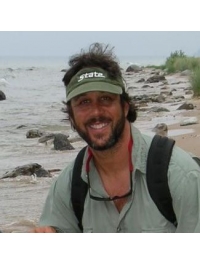
Michael Kaplowitz
Michael D. Kaplowitz [Ph.D. Resource Development, MSU J.D., Duke University] is Professor of Environmental Law and Policy. Kaplowitz has published Property Rights, Economics, and the Environmentand has published peer-reviewed articles on valuation of ecosystems, law and economics, wetlands, watershed management, and research methods in American Journal of Agricultural Economics, Ecological Economics,Duke Environmental Law and Policy Forum, Landscape and Urban Planning, and elsewhere. His research is supported, in part, by U.S. Environmental Protection Agency, the National Oceanic and Atmospheric Administration, and others. Kaplowitz is building an integrated research and teaching program with colleagues in Israel that will provide hands-on, experiential learning opportunities for MSU students focused on environmental management and policy in Israel. This will tie together collaborative research of MSU and Keren Kayemet (JNF) and overseas study opportunities. Professor Kaplowitz developed the Green Israel summer program in Israel in summer 2008.
CAMPUS ADDRESS: 331C Natural Resources
PHONE: 517-355-0101
EMAIL: kaplowit@msu.edu
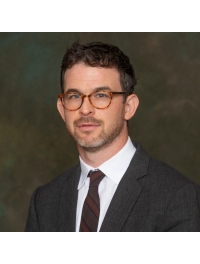
Noah Kaye
Noah Kaye [Ph.D. Ancient History and Mediterranean Archaeology, UC-Berkeley] is an Assistant Professor in the Department of History. He is an ancient historian and archaeologist focused on the eastern Mediterranean in the Hellenistic and Roman periods, with an interest in the relationship between economic and cultural change. His first book will be a study of the political economy of the Attalid kingdom of Pergamon. He has published an article on Flavius Josephus and plans to publish one soon on public property in the Hasmonean town of Gezer. He was involved with the publication of a multi-lingual corpus of inscriptions known as the Corpus Inscriptionum Iudaeae et Palestinae, and he works with Jewish coins of the Graeco-Roman Period. In Spring 2020, he will be teaching HST481: The Holy Land in the Graeco-Roman Period. He was a Fulbright postdoctoral fellow in the Department of History at the University of Haifa and was recently a fellow at the Albright Institute of Archaeology in Jerusalem.
CAMPUS ADDRESS: 506 Old Horticulture
PHONE: 517-884-4952
EMAIL: kayenoah@msu.edu
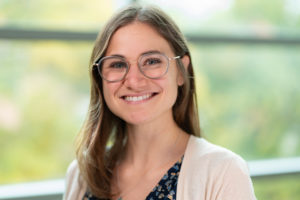
Aliza Lambert
Aliza Lambert is the STRIDE Services Manager at Michigan State University. STRIDE (Services, Training and Research for Independence and Desired Employment) is a center that supports transition-age youth with intellectual and/or developmental disabilities as they transition into employment and adult life after high school. As the STRIDE Center Services Manager, Dr. Lambert develops pre-employment transition services and implements services throughout the state of Michigan. Aliza received her BA in Special Education-Learning Disabilities from Michigan State university, her master’s in Rehabilitation Counseling from Kent State University, and her Ph.D. in Counselor Education and Supervision from Virginia Commonwealth University. Some of Aliza’s work includes research about lived experiences of Jewish youth with intellectual and/or developmental disabilities, American Jewish identity development, and antisemitism and Islamophobia.
CAMPUS ADDRESS: 2875 Eyde Parkway, East Lansing, MI 48823
PHONE: 517- 353-4060
EMAIL: lambe15@msu.edu

Benjamin Lorch
Benjamin Lorch teaches public affairs and political philosophy at James Madison College. He received his BA from St. John’s College and his PhD in political theory from Boston College. His research focuses on classical and medieval political thought, particularly on the relation between philosophy and religion, and he has published articles on Plato and Xenophon in peer-reviewed political science journals. Professor Lorch also conducts research in Jewish thought. He has delivered public lectures at MSU on Jewish political thinkers including Gershom Scholem and Maimonides, and most recently he published an article on Maimonides’ Guide of the Perplexed, “Maimonides on Prophecy and the Moral Law” in Interpretation: a Journal of Political Philosophy.
CAMPUS ADDRESS: 367 S. Case Hall
PHONE: 517-353-9396
EMAIL: lorch@msu.edu

Deborah Margolis
CAMPUS ADDRESS: Main Library E-221
PHONE: 517-884-0892
EMAIL: deborahm@msu.edu

Noga Morag-Levine
Noga Morag-Levine (Ph.D., Jurisprudence and Social Policy, University of California Berkeley, 1995; LL.B. cum laude Hebrew University, 1986) is Professor of Law and George Roumell Faculty Scholar at Michigan State University College of Law. Drawing on environmental law, legal history and comparative politics, her research examines the institutional origins of cross-national differences in environmental and social regulation. Her earlier work addressed these issues in reference to the history of Israeli environmental and abortion law and politics. The primary focus of her research currently is on the development of distinct American and European regulatory paradigms under the respective influence of the common law and continental civil law traditions. Professor Morag-Levine is the author of Chasing the Wind: Regulating Air Pollution in the Common Law State (Princeton University Press, 2003) as well as numerous articles and essays, including, most recently, “Facts, Formalism and the Brandeis Brief: The Origins of a Myth” (University of Illinois Law Review 2013) and “The History of Precaution,” (American Journal of Comparative Law). Prior to coming to MSU she was a Visiting Fellow at the Program of Law and Public in Princeton University, Assistant Professor of Political Science at the University of Michigan, and Lady Davis Post-Doctoral Fellow at the Hebrew University of Jerusalem.
CAMPUS ADDRESS: Law College Bldg, Room 319
PHONE: 517-432-6886
EMAIL: moraglev@law.msu.edu
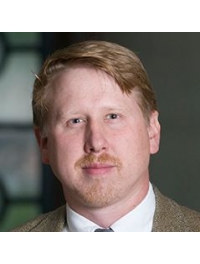
Matthew Pauly
Matthew Pauly is a historian of Russia and Eastern Europe. Dr. Pauly’s first book, Breaking the Tongue: Language, Education, and Power in Soviet Ukraine, 1923-34 (Forthcoming, University of Toronto Press, Fall 2014] The book concerns the political acculturation of the first generation of Soviet Ukrainian citizens through native-language schooling and pedagogical innovation in the 1920s and early 1930s and references issues of Yiddish-language instruction and Jewish identity in early Soviet Ukraine. His next book-length project is entitled “Raising ‘Nobody’s Children’: Juvenile Poverty, Crime, and Salvation in the City of Odessa, 1880-1940” and addresses, among other subjects of concern, children’s welfare societies for poor Jewish children and assistance to juvenile victims of the 1905 Odessa pogrom. He teaches the History of Modern Eastern Europe, the History of Imperial Russia, and methodological seminars on the History of Nationalism and National Identity and the History of Childhood in Modern Europe.
CAMPUS ADDRESS: 247 OLD HORTICULTURE
PHONE: 517-884-4925
EMAIL:paulym@msu.edu

Galit Pelled
Galit Pelled is Professor in the Department of Biomedical Engineering, Department of Radiology, and Chief of the theNeuroengineering division of the Institute of Quantitative HealthSciences and Engineering. Her research program focuses on understanding how injury changes neuronal connections, how neuromodulation impacts these changes, and how these changes affect recovery. She received her Ph.D. in Neuroscience from the Hebrew University. Before coming to MSU, she served as an Associate Professor of Radiology at the John Hopkins School of Medicine and Kennedy Kreiger Institute and completed her postdoctoral fellowship in the National Institutes of Health in Bethesda, Maryland. Dr. Pelled is enthusiastic about promoting research collaboration between MSU scholars, Israeli scholars and Israeli institutions, participating in and expanding study abroad opportunities in Israel, and joining our intellectual community.
CAMPUS ADDRESS: 2114 Bioengineering Facility
PHONE:
517-884-7464
EMAIL: pelledga@msu.edu

BRYAN SMITH
Associate Professor of Biomedical Engineering, College of Engineering
Serling Institute Affiliated faculty Bryan R. Smith is a member of the Institute for Quantitative Health Science and Engineering. His lab blends engineering, chemistry, biology, physics, and medicine to develop new imaging and therapeutic approaches. He is developing novel nanotechnology-based strategies to harness the power of the immune system, creating novel diagnostic imaging and therapeutic agents for diseases including cancer, atherosclerosis, and neurodegeneration.
Dr. Smith is very interested in fostering scientific research between MSU and Israeli universities and already has experience doing so. He writes,”Past collaborations and discussions have included faculty members at Hebrew University, involving nanoparticle development and applications, as well as projects involving detailed, rapid cellular microscopy. I have recently initiated collaborations with faculty at the Weizmann Institute with respect to a new project on developing high-dimensional, multi-parametric bio-characterization techniques with relevance to disease diagnostics and new drug target identification.”
Dr. Smith is interested in developing greater collaborative research with faculty at the Hebrew University, and in being more actively involved with the Serling Institute as a whole.
CAMPUS ADDRESS: 775 Woodlot Drive, Bioengineering Building (IQ Building).
PHONE: 517- 353-7073
EMAIL: smit2901@msu.edu

Stephen Rachman
Stephen Rachman [Ph.D. American Studies, Yale] is Director of the American Studies Program and Co-Director of the Digital Humanities Literary Cognition Laboratory at Michigan State University. Dr. Rachman is the editor of The Hasheesh Eater by Fitz-Hugh Ludlow (Rutgers University Press). He is a co-author of the award-winning Cholera, Chloroform, and the Science of Medicine: A Life of John Snow (Oxford University Press) and the co-editor of The American Face of Edgar Allan Poe (Johns Hopkins University Press). He has written numerous articles on Poe, literature and medicine, cities, popular culture, and an award-winning website on Sunday school books for the Library of Congress American Memory Project. He is a past president of the Poe Studies Association and currently completing a study of Poe titled The Jingle Man: Edgar Allan Poe and the Problems of Culture. For many years, Dr. Rachman has taught ENG 344 “Jewish-American Literature” and directed honors theses on such notable authors as Emma Lazarus, Philip Roth, Abraham Cahan, Mike Gold, and Cynthia Ozick.
CAMPUS ADDRESS: C-610 Wells Hall
PHONE: 517-884-4421
EMAIL: rachman@msu.edu
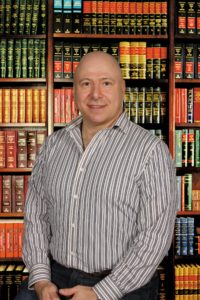 Frank S. Ravitch
Frank S. Ravitch
Frank S. Ravitch is Professor of Law and Walter H. Stowers Chair in Law in Religion at the Michigan State University College of Law. He also directs the Kyoto Japan Program. Among the books he has written are Freedom’s Edge: Religious Freedom, Sexual Freedom, and the Future of America (Cambridge University Press, 2016) (Nominated for a Prose Award); Marketing Creation: The Law and Intelligent Design (Cambridge University Press 2012), Masters of Illusion: The Supreme Court and the Religion Clauses (NYU Press 2007); Law and Religion: Cases, Materials, and Readings (West 2004)(2nd Ed. 2008)(3rd Ed. 2015)(4th Ed. 2021 with Larry Cata Backer), School Prayer and Discrimination: The Civil Rights of Religious Minorities and Dissenters (Northeastern University Press, 1999 & paperback edition 2001). He is co-author, with the late Boris Bittker and with Scott Idleman, of the first comprehensive treatise on Law and Religion in more than one hundred years, Religion and the State in American Law (Cambridge University Press 2015) (this project was supported by a generous grant from the Lilly Endowment). He is also co-author, with Colin Jones, of, The Japanese Legal System (West Hornbook Series 2019), and Employment Discrimination Law (Prentice Hall, 2005) (with Pamela Sumners and Janis McDonald).
Professor Ravitch’s articles, which have appeared in a number of highly regarded journals, have primarily focused on law and religion in the U.S. and Japan, but he has also written about civil rights law and disability discrimination. He has authored a number of amicus briefs to the U.S. Supreme Court and has given numerous academic presentations nationally and internationally. In 2001, he was named a Fulbright scholar and served on the law faculty at Doshisha University (Japan). He has also made dozens of public presentations explaining the law before school groups, community groups, and service clubs and has served as an expert commentator for print and broadcast media.
Professor Ravitch teaches Torts, Law and Religion, and Law and Interpretation. He speaks English, Japanese, and Hebrew.
“Almost all of my work is influenced by my Jewish heritage and my writing and focus on religious minorities naturally benefits the Jewish Community. Moreover, I have written about the Israeli Basic Laws and will be writing a book chapter on Antisemitism in modern Europe (the book was delayed due to covid). Several of my books, book chapters, and articles directly reference Jewish concerns. I would like to join the Serling Institute because of my commitment to Jewish values and the protection of religious minorities. As an observant Jew I would like to be more involved in the intellectual Jewish life (research and programming) on campus.”

Gail Richmond
Dr. Gail Richmond is a Professor of Science & Urban Education in the Department of Teacher Education at MSU. She is the Co-Editor of the Journal of Teacher Education. Dr.Richmond traveled to Israel this year in support of a research exchange between doctoral students in STEM education fields at MSU and those at both the Weizmann and Technion Institutes. She has recently been named a Fulbright Senior Specialist, and hopes to use this as a vehicle to return to Israel to work on issues of pathways to STEM teacher certification, teacher induction and informal science education. Currently, Dr. Richmond is writing an NSF grant proposal in collaboration with a colleague from the Technion and the Kellogg Biological Station, and working to provide opportunities for collaboration and cultural exchange.
CAMPUS ADDRESS: 319 Erickson Hall
PHONE: 517-432-4854
EMAIL: gailr@msu.edu

AYALLA RUVIO
Dr. Ayalla Ruvio is an Associate Professor of Marketing at Michigan State University, and the Associate Dean of MBA and Master’s Programs at the Broad College of Business, at Michigan State University. She is an applied consumer behavior researcher who explores the psychology of consumers’ shopping behaviors. Her research centers on issues such as identity and consumption, material vs. experiential consumption, loyalty rewards programs, and consumer arrogance. She serves on the editorial board of the Journal of the Academy of Marketing Science, and the Journal of Business Research. Her research has been published in refereed journals, including the Harvard Business Review, the Journal of the Academy of Marketing Science, the International Journal of Research in Marketing, and the Leadership Quarterly. She co-authors the textbook “Consumer Behavior and Insights,” and co-editors the book “Identity and Consumption 2e.” Her research has been featured in numerous media outlets worldwide, including CNN, the TODAY show, Good Morning America, TIME magazine, The New York Times, Forbes, The Washington Post, Consumer Reports, The Daily Telegraph, The Atlantic, The Telegraph, and the Toronto STAR.
CAMPUS ADDRESS: 632 Bogue Street, Room N304
PHONE: 517-432-6467
EMAIL: ruvio@broad.msu.edu
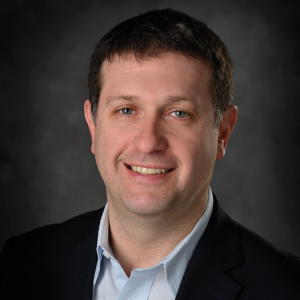
Erik Shapiro
Erik Shapiro is Associate Chair of Research and a Professor in the Department of Radiology. He also serves as Director of the Biomedical Imaging Division in the Institute for Quantitative Health Science and Engineering. His Molecular and Cellular Imaging Laboratory (MCIL) develops and uses magnetic resonance imaging (MRI), positron emission tomography (PET) and x-ray computed tomography (CT) for molecular and cellular imaging of biological phenomena, regenerative medicine, and early detection of disease.
Dr. Shapiro graduated from the State University of New York at Binghamton with a degree in chemistry and holds a MS and Ph.D. in chemistry from the University of Pennsylvania. He conducted his post-doctoral work in molecular imaging at the National Institutes of Health and spent six years as junior faculty at Yale University School of Medicine before joining MSU in 2012. Amongst his awards is a National Institutes of Health New Innovator Award.
Dr. Shapiro is interested in learning about how Israeli scientists maintain an exciting biotechnology entrepreneurial environment and achieve their many scientific accomplished in a context of limited financial resources and constant external threats and pressures. This information can prove useful even here in America where funds and resources can sometimes be in short supply. Further, he is interested in expanding collaborations with imaging experts at The Technion, Hebrew University and The Weizmann Institute.
CAMPUS ADDRESS: Radiology Building, Room 184
PHONE: 517-884-3270
EMAIL: shapir86@msu.edu
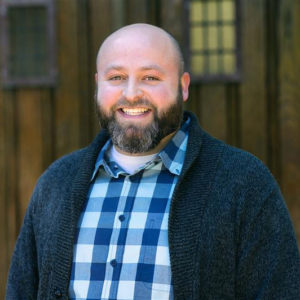 Morgan Shipley
Morgan Shipley
Morgan Shipley is the Inaugural Foglio Endowed Chair of Spirituality and Associate Professor of Religious Studies at Michigan State University. His research focuses on 1) the place and experience of new religious movements in American history; 2) the connections between religion, spirituality, and social justice; and 3) the emergence and implications of secular spirituality. These foci regularly engage with the Jewish experience in America, specifically as it relates to new religious orientations and the pursuit of a more just and equal society. He has published on Jewish mysticism and connections between Judaism, Jewish movements, and identity (“Kabbalah (Women and)” and “Hasidism (Women/Feminine in),” both in Encyclopedia of Women in World Religions: Faith and Culture Across History (Santa Barbara, CA: ABC-CLIO, 2018).
At Michigan State University, he has taught three courses that directly engage with Judaism: Religious Studies 412: Jewish Mysticism (Fall 2023, Fall 2017, Fall 2016), Religious Studies 310: Judaism (Spring 2018, Spring 2017), and HST 317: American Jewish History (Spring 2022). He has worked with colleagues from Jewish Studies on two initiatives designed to advance MSU’s commitment to DEI: along with Professors Kirsten Fermaglich and Amy Simon, developed a 9-week series on combatting antisemitism and Islamophobia as part of the MSU Dialogue Series and a new four-session live “conversation” model, which was co-convened along with Professors Yael Aronoff, Mohammad Khalil, Kirsten Fermaglich, Amy Simon, and Ariana Mentzel.
CAMPUS ADDRESS: 732 Wells Hall, 619 Red Cedar Rd
EMAIL: shiple18@msu.edu
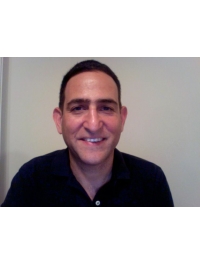
Ronen Steinberg
Ronen Steinberg (Ph.D., History, The University of Chicago) is an assistant professor of history at Michigan State University. His primary areas of interest are the French Revolution, Modern European History, and mass violence. He has published articles and book chapters on the history of terrorism, transitional justice, and the aftermath of the Reign of Terror in revolutionary France. He has been a residential fellow at the Eisenberg Institute for Historical Studies at the University of Michigan, and a Benjamin Franklin Fellow of the American Philosophical Society. Most recently, a yearlong residential fellowship in the Institute for Historical Studies at the University of Texas at Austin funded research on trauma and history. He is currently working on a book manuscript titled tentatively The Afterlives of the Terror: Dealing with the Legacies of Violence in Post-Revolutionary France. At Michigan State University he teaches regularly a course on the History and Theory of Genocide as well as a seminar on how societies deal with the legacies of massive violence.
CAMPUS ADDRESS: 350C OLD HORTICULTURE
PHONE: 517-884-4965
EMAIL: ronens@msu.edu
Chantal M. Tetreault
Chantal M. Tetreault (Ph.D., Linguistic Anthropology, University of Texas at Austin) is an Associate Professor in the Anthropology Department.
“My new research examines how shared notions of Jewishness and Jewish community are produced through a negotiation of practices (rather than beliefs) within a Reconstructionist shul (synagogue). More specifically, I consider what it means to be a Jewish community when both a shared monologic belief or a consistent practice is absent. Using oral histories and ethnography, I explore the co-construction of senses of community among Jewish adherents of apparent mixed beliefs and/or practices. Building upon a panel from the 2019 American Anthropological Association, I am currently co-editing a special issue for the journal Religion and Society (slated for 2021), which will feature my research on constructions of “sharedness” in Jewish belief and practice among oral history participants in a Reconstructionist community. This research is a collaborative project with Dr. Kirsten Fermaglich, whose research focuses on Jewish Academic Communities in the United States After World War II.”
CAMPUS ADDRESS: Anthropology Department, Michigan State University
East Lansing, MI 48824
PHONE: (517) 355-0208
EMAIL: tetreau7@msu.edu

Margot B. Valles
Margot B. Valles (Ph.D., Comparative Literature, Doctoral Minor in Jewish Studies, Indiana University) is an Assistant Professor in the department of English. She previously taught for the Center for Integrative Studies in the Arts and Humanities in the College of Arts and Letters. Her dissertation, “Judaizing Romance and Romanticizing Judaization,” examines the way that medieval romances (including those about King Arthur) were adapted into Hebrew and Yiddish in the Late Middle Ages and the Early Modern Period. She continues to explore the relationship between adaptation/translation and Jewishness in her teaching and research. Her courses include IAH 207: “Humor in 20th Century Jewish Literatures, Cultures, Identities” and ENG 356 Readings in Jewish Lit: “Jewish Masculinities.”
CAMPUS ADDRESS: Wells C-737
EMAIL: vallesm@msu.edu
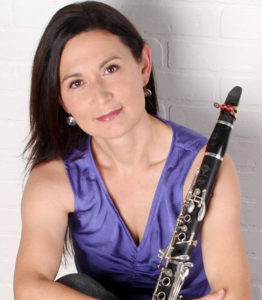
Tasha Warren
Tasha Warren, Grammy-nominated recording artist, teacher and international performer, has premiered over one hundred solo clarinet and chamber works throughout the US, Europe, China, South Korea, Israel, and India. She has recorded with Innova, Alba, and SCI Records, Crystal, and Centaur Records. Her recent album, “Ourself Behind Ourself, Concealed” (Bright Shiny Things Label), a collaboration with cellist Dave Eggar of newly commissioned and premiered Bass Clarinet and Cello works, earned two 2023 Grammy nominations. Her solo CD, The Naked Clarinet (Crystal Records), has hailed praise in reviews from International Record Review, Fanfare Magazine, The Clarinet Magazine, and others. Her recording chamber works featuring clarinet and strings, Black Lines, was released by Centaur Records in 2016.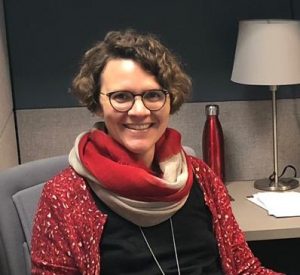 LYNN WOLFF
LYNN WOLFF
Department of Linguistics and Germanic, Slavic, Asian and African Languages, College of Arts and Letters
Lynn Wolff’s research and teaching deal b
roadly with twentieth-and twenty-first-century German literature and culture and interdisciplinary questions of translation, visuality, and world literature. The core concern of her work is with the fundamental and sustained tension between literature and historiography, and a major focus of her research is in the area of Holocaust Studies. She explored the specific ethical and aesthetic questions inherent to the problem of representing the Holocaust in several publications and in a graduate seminar that she taught at the Universität Stuttgart (2012-2013). The interdisciplinary nature of Holocaust studies has made it possible for her to build important networks at MSU and in the profession. She participated in multiple workshops offered by the MSU Libraries to become familiar with the USC Shoah Foundation’s Visual History Archive, a resource that is integral to her current book project. In summer 2017, she participated in the Silberman Seminar on “Visualizing the Holocaust and Digital Humanities in the Classroom” at the United States Holocaust Memorial Museum, and was awarded a follow-up grant for this summer to continue developing a graduate seminar on “The Representability of the Holocaust,” which she is offering in the Fall 2019 semester.
CAMPUS ADDRESS: 619 Red Cedar Road, B-265 Wells Hall
PHONE: 517-353-3269
EMAIL: lwolff@msu.ed
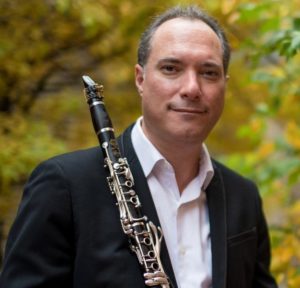 GUY YEHUDA- CLARINET
GUY YEHUDA- CLARINET
Israeli-American clarinetist Guy Yehuda is recognized as one of the most outstanding and unique talents on the international concert stage today. Hailed by composer John Corigliano as “One of the most awe-inspiring clarinetists today”, He has won several international competitions, such as the Heida Hermanns International Woodwind Competition and the Fischoff Chamber Music Competition as the gold medalist. Mr. Yehuda has toured extensively in Europe, North and South America, Israel, South Korea and China. As principal clarinetist, he has performed with the Israel Philharmonic, Lucerne Contemporary Festival Orchestra, Chicago Civic Orchestra, Spoleto Festival Orchestra, Haifa Symphony Orchestra and Cincinnati Chamber Orchestra, among others, as well as guest clarinetist with the Chicago Symphony Orchestra and the Jacksonville Symphony Orchestra. A highly demanded musician, he has performed as soloist and chamber musician around the world, including at the Israeli Chamber Music Festivals in Tel Aviv and Haifa. Yehuda is a sought-after recitalist throughout North America, Europe and Asia. He has performed as soloist in prestigious halls and venues such as Carnegie Hall, Domain Forget, (Canada), Chicago Symphony Hall, Palacio Fuz and Casa di Musica in Portugal, Mann Auditorium in Tel Aviv and Dame Myra Hess Chamber Series. Yehuda’s discography recordings won many acclaims and rave reviews. His varied discography includes CDs on XII-21, Albany records, and Blue Griffin record labels
Yehuda has given master classes throughout the U.S, Canada, Mexico, Brazil, Europe, China, and Israel. He is the Associate Professor and Artist Teacher of Clarinet at Michigan State University College of Music, and principal clarinetist with the Lansing Symphony and Jackson Symphony Orchestras. He is the Artistic Director of the Henri Selmer International Summer Academy in Michigan, as well as the clarinet faculty resident at the Vianden Summer Festival in Europe, Aria International Music Festival in Massachusetts and Fresno Summer Orchestra Academy in California.
Yehuda has a strong connection to Israel and its music world. Aside from performing in Israel with some of Israel’s best ensembles such as the Tel-Aviv soloists, The Israeli Contemporary Ensemble and more, he continues to work with composers from Israel and commissioning new works. During his recent sabbatical semester to Israel, Yehuda concert toured and recorded a new work written for him by composer Daniel Akiva: Safaradic Anthology for clarinet and guitar to be released soon on CD. Yehuda’s interest in Jewish music led to performances around the world of major Jewish works and the launch of the Klezmer group Guy and the Yehudas in Jacksonville, Florida. In collaboration with the Serling Institute, and the College of Music, Yehuda plans to bring more Jewish and Israeli art music to Michigan State University and to engage the surrounding community with the experience of Jewish, Israeli Music and culture.
CAMPUS ADDRESS: 218 Music Practice
PHONE: (517) 355-7645
EMAIL: yehuda@msu.edu
Affiliated Faculty at Israeli Universities

Benjamin Pollack
Benjamin Pollock [Ph.D., Jewish Thought, Hebrew University of Jerusalem] is a faculty member at Hebrew University whose primary research interests are Jewish philosophy, post-Kantian continental philosophy, and the philosophy of religion. Pollock teaches courses on Judaism and Jewish Thought, the philosophy of religion, and theories and methods in the study of religion. His Franz Rosenzweig and the Systematic Task of Philosophy (2009) received the Salo Baron Prize for outstanding first book in Jewish Studies and the Jordan Schnitzer Award for best book in Philosophy and Jewish Thought, 2009-2012. His Franz Rosenzweig’s Conversions: World Denial and World Redemption was published by Indiana University Press. Pollock led the MSU Jewish Studies Summer Study Abroad program in Jerusalem in 2011.
Emeritus Affiliated Faculty

Lynne Goldstein
Lynne Goldstein [Ph.D. Anthropology, Northwestern U.] is Professor and former Chair of the Department of Anthropology. She is an archaeologist who has published on the analysis and meaning of mortuary practices, quantitative research methods, eastern U.S. archaeology, and ethics and public policy in anthropology. Lynne is currently Publications Director of the Archaeology Division of the American Anthropological Association, and she has also been editor of American Antiquity as well as Anthropology and Archaeology consultant for the Encarta World English Dictionary. She is a Fellow and past Chair of the Anthropology Section of the American Association for the Advancement of Science. Most of her books and articles are on the archaeology of the eastern U.S. or mortuary analysis and the ethics of archaeology.
EMAIL: lynneg@msu.edu

Michael Koppisch
Michael Koppisch is Professor Emeritus of French at Michigan State University. His scholarly work has centered on the literature of seventeenth-century France, especially the theater of Molière and the moraliste tradition. He is currently pursuing a longstanding interest in the history and literature of the Shoah in France.
Email: koppisch@msu.ed

Ellen Rothfeld
Ellen Rothfeld (MSU, Tel Aviv University) taught Modern Hebrew language courses and Independent Studies in MSU’s Department of Linguistics and Germanic, Slavic, Asian and African Languages from 1996-2014. She also taught Hebrew Summer Day Camp through MSU’s Center for Language Teaching Advancement (CeLTA) in the College of Arts and Letters. Ellen established and for many years coordinated the Jewish Studies Annual Israeli Film Festival and Israeli Film Series. She has brought numerous distinguished guests and presentations to MSU as part of the Jewish Studies Program. Ellen continues her involvement with the Serling Institute and the film festival on a part-time basis. She also teaches Israeli folk dancing within the community, and does occasional translation.
In Memoriam

Anna Norris (of blessed memory)
Anna Norris (of blessed memory) was Associate Professor of French and was an active affiliate faculty of Jewish Studies for at least 11 years. She had a wide range of research interests in French literature, culture, cinema, Holocaust studies, and trauma writings. She taught a wide range of courses in theses fields, both at the undergraduate and the graduate levels, and was the resident director of the summer program in Tours, France. Anna was nominated for the Faculty of the Year Award, by the National Society of Collegiate Scholars, and was named Chevalier des Palmes Académiques by the French Ministry for Higher Education and Research. She served as Acting Chair of the Department of French, Classics, and Italian from 2008 to 2010. Her publications include a book on prison writings in nineteenth and twentieth century France (2003) and co-edited a book on French women’s writings and war (2007) and peer edited essays and book chapters on prison writings, French literature, French and Francophone cinema, women’s and gender studies, Holocaust studies, and Jewish studies. She was finishing a book manuscript on Marie Cappelle Lafarge. Anna was working on Marcel Ophüls, the first French filmmaker to tackle the controversial topic of French collaboration and resistance during World War II. She recently published “Auschwitz-Birkenau 1944–1945: Marceline Loridan-Ivens tourne et retourne son passé,” Women in French Studies 2015, and “Mauvaises mères et filles meurtries dans les textes d’Irène Némirovsky” in Daniela Di Cecco (ed.), Girls in French and Francophone Literature and Film (Leiden, the Netherlands: Koninlijke Brill NV, 2015).
May Anna’s memory be for a blessing and may she rest in peace. We will miss Anna and remember her.
